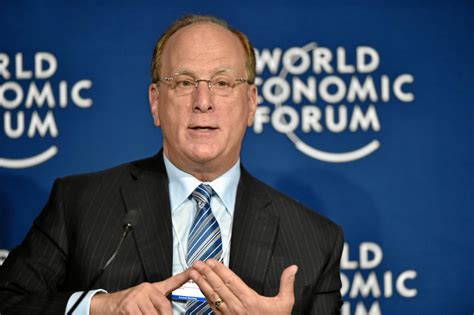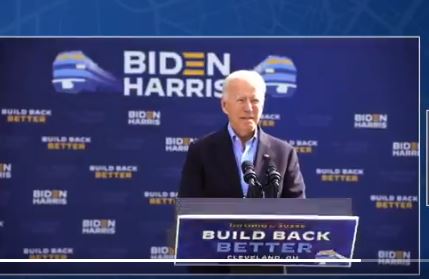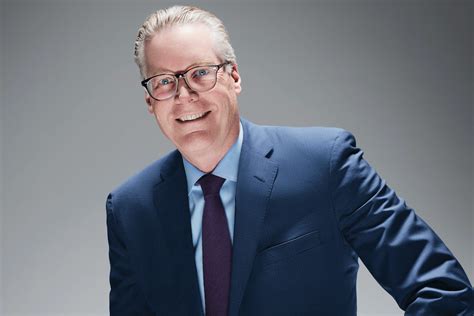THE ROAD TO GLOBAL FASCISM: How Wall Street Investment Banks Use Coercion to Promote Social Justice, Climate Change, and Globalism

Guest post by Bob Bishop
Italian Dictator Mussolini said fascism was “rule by corporations.” Mussolini’s definition has mutated where the global elites are now starting to use a corporate social credit score to exert control over corporations and free-market enterprise.
The template for growing global fascism is CEO Larry Fink’s Blackrock investment bank ($8.7 trillion assets under management). This article will demonstrate Blackrock’s growing influence which promotes social justice, climate change, and globalism to the detriment of free enterprise.
Larry Fink the Globalist
Larry Fink is a board member of the World Economic Forum, built around the motto “you will own nothing and be happy.” The World Economic Forum is an international organization of political and corporate apparatchiks whose mission is global collectivism. Standing in their way are democratic principles, free enterprise, and nationalism.

WEF’s Build Back Better is a worldwide slogan used by Canada, United Kingdom, and the United Nations. Joe Biden’s campaign adopted the slogan, which he continues as his mission statement.

ESG is Woke Corporate Culture
ESG is a corporate rating system that stands for Environment, Social, and Governance. Bloomberg’s New Energy Finance collects ESG data and establishes ratings for over 10,000 publicly-listed companies globally. Bloomberg defined the principles covering 120 environmental, social, and governance indicators to arrive at a rating, which is not transparent to the public. Bloomberg is the arbitrator of corporate governance and uses ESG to promote World Economic Forum’s stakeholder capitalism.
Stakeholder capitalism is the hammer of global fascism. It is a theory that requires corporations to be accountable to multiple constituencies like consumers, shareholders, employees, suppliers, local communities, creditors, and government. In substance, it rejects the free-market system.
As one would suspect, oil companies are a target and get negative ratings even though fossil fuels are indispensable to modern society. For example, Chevron’s rating is severe at 40.5 (out of 100). The methodology is based on progressive ideology punishing corporations like Chevron by influencing investor perceptions and shaming corporate boards and management.
A high ESG rating limits an investor’s potential profit due to costly compliance and subrogates stockholders’ interest to that of outsiders. The rating system hurts America’s ingenuity and competitiveness and empowers China.
Corporations can increase their ESG score by using their corporate bully pulpit. An example is Delta Airline’s CEO Ed Bastian (below) declaring Georgia’s pragmatic new voting law as racist. Delta’s reward is a higher social score component.

Blackrock has created investment processes and oversight mechanisms built around ESG. Due to its sheer size, it can lean on corporations to comply with ESG. An authoritarian approach not rooted in the rule of law. Blackrock is lobbying for the creation of regulatory regimes for government enforcement.
Blackrock Controls Shareholder Voting Rights
Shareholder voting gives investors the power to elect directors and make their views known to management and directors on significant issues and goals that affect their investment. The shareholders can influence stock buybacks, executive compensation, and changes to a company’s bylaws.
Exchange-Traded Funds and mutual funds own the underlying securities meaning the issuers control the shareholder voting power and have considerable influence over management and the Board of Directors. The funds are a passive investment, and investors have no rights.
Blackrock manages 1,054 ETFs, mutual and closed funds. It uses its voting clout and engagements (intervention) with corporate directors and management. Through the bulk voting of shares (16,200 meetings in 2020), Blackrock sets the leadership and stewardship expectations on climate change, social justice, and governance. It can withhold votes for directors that are obstacles to its agenda.
Blackrock and other Wall Street investment banks’ votes don’t enhance shareholder interest due to promoting progressive ideology. Quality of goods and services and profitability take a backseat.
Blackrock Controls Access to Capital
Because of the sheer size of Blackrock’s assets under management, companies that have low ESG scores or don’t embrace stakeholder capitalism risk shutting themselves off from a substantial source of capital. Also, Blackrock could invest in a company through one of its funds and apply pressure to follow ESG objectives.
Employer Progressive Evangelism
Blackrock uses Benevity cloud software for employee payroll donations to nonprofits. Benevity describes its mission as a “goodness platform that empowers socially conscious brands to make a real difference.” The platform incentivizes donations through corporate matches for Blackrock targeted social justice causes.
Benevity provides benchmarking software measurement that includes personal dashboards displaying an individual’s impact and can be used to rank against colleagues, referred to as “gamification.” Social investments are measured, as well. Benchmarking employee participation can create a coercive participatory culture and leads to employee resentment donating to causes against their religious or traditional social beliefs.
Larry Fink uses his CEO position to bully employees where their merit raises and bonuses are adversely impacted if they don’t achieve diversity hiring targets. Unfortunately, Blackrock’s inclusion and diversity imperative create token employees who are unsuitable or unqualified, undermining corporate efficiency and morale. The policy creates a potential stigma for talented employees who could be viewed as tokens and their promotions viewed with unwarranted cynicism.
Crony Capitalism
The Federal Reserve selected Blackrock to purchase commercial mortgage-backed securities and corporate bonds in Special Purpose Investment Vehicles (like Enron) to stabilize an illiquid junk bond market due to the pandemic-led recession. The US Treasury guarantees the losses of the SPIVs portfolios. As manager, Blackrock purchased $623.4 million of its packaged junk bond ETFs to cover heavy liquidations bailing out Blackrock and its investors.
Because of Blackrock’s cozy relationship with the Federal Reserve, it could use the inside information to make highly profitable proprietary trades. Carl Icahn labels Blackrock as “an extremely dangerous company.”
Milton Friedman on Social Responsibility of Businesses
The late Milton Friedman’s (1976 Nobel Memorial Prize in Economic Sciences) famous 1970 New York Times editorial eloquently addresses corporate social responsibility.
Friedman believed executives spending company money on social causes is, in effect, spending shareholder’s money for their ideology, political, or personal agendas. If the actions raise product prices, it is spending customer money. If it causes lower employee wages, it is spending their money. In other words, an imposition of taxes on goods and services paid by the public.
Corporations engaging in social responsibility “harm the foundations of a free society.” It creates the perception that the pursuit of profits is “wicked and immoral” and must be “controlled by external forces,” an invitation for government mandates and the erosion of free enterprise.
Bob Bishop is a retired corporate CPA.

